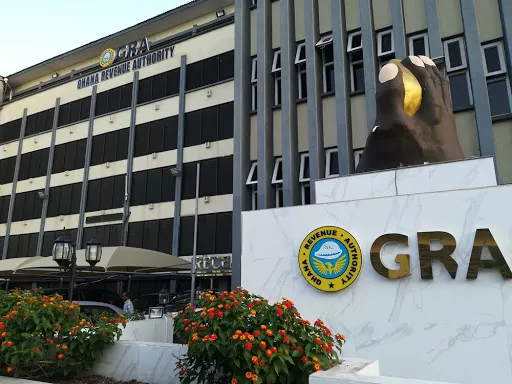Pilots Online Tax Tool, Plans AI-Powered Customs Overhaul
By Prince Ahenkorah
The Ghana Revenue Authority (GRA), is taking major steps to modernize its operations, announcing the pilot of a digital economy tool to tax online businesses and plans to deploy artificial intelligence (AI) to transform customs classification and valuation.
Speaking at the KPMG 2026 Post-Budget Forum in Accra on Monday, November 17, themed “Resetting for Growth, Jobs and Economic Transformation,” Acting Commissioner-General Anthony Kwasi Sarpong said, the digital economy tool aims to ensure Ghana benefits from the rapidly growing online business sector.
“Online businesses are growing. There are businesses outside the country selling a lot in Ghana, but we do not get the benefit of the VAT,” Mr. Sarpong explained.
The GRA is collaborating with the Bank of Ghana and the Financial Intermediation to deploy a system that automatically deducts taxes at the point of payment.
Citing global examples, including tech giants like Amazon, he emphasized that the initiative is not about introducing new taxes but improving efficiency in collecting existing ones.
“Government action is really not to introduce new taxes; it is to create efficiencies in the way we employ the existing taxes. In that way, we believe we can generate a lot more revenue,” he said.
In a related talk, Mr. Sarpong outlined plans to revolutionize customs operations by using AI to improve the classification, valuation, and duty assessment of imported goods.
He noted that misclassification, inaccurate valuation, incorrect determination of country of origin, and tampering with shipping manifests remain major challenges for Ghana’s customs system.
“One of the major challenges we have in this country is what we call the classification and valuation of custom goods,” he said. “Depending on where the goods are coming from, you get duty differentials. But the worst of it all is tampering with manifests. When a ship has sailed and says it is carrying a 40-foot container of rice, it gets to Ghana, and somehow on the high seas, it is gypsum powder which Customs is seeing.”
To address these issues, GRA plans to introduce an AI-driven system that will assist officers in assessing, classifying, and valuing imports.
The AI will work alongside human officers, dramatically reducing the time needed for duty calculations. “The AI will determine the duty of the product in less than 10 minutes once you feed it the data. Today, it takes about 30 minutes to one hour for officers to do that,” Mr. Sarpong said.
Mr. Sarpong mentioned that the AI initiative is part of a broader push to modernize Ghana’s revenue administration, enhance efficiency, and curb revenue leakages caused by human error or fraudulent practices.
By deploying AI in customs operations, the GRA hopes to speed up clearance processes, ensure accurate duty collection, and boost investor confidence in Ghana’s trade and import environment.
The move aligns with government policies outlined in the 2026 Budget, which aim to create a more efficient, transparent, and technology-driven tax and revenue system to support economic growth and job creation.


